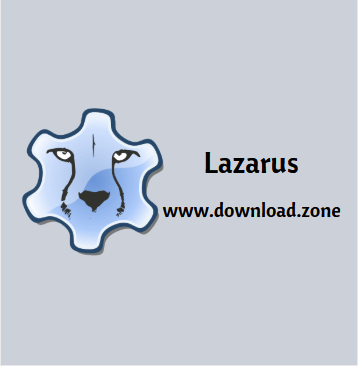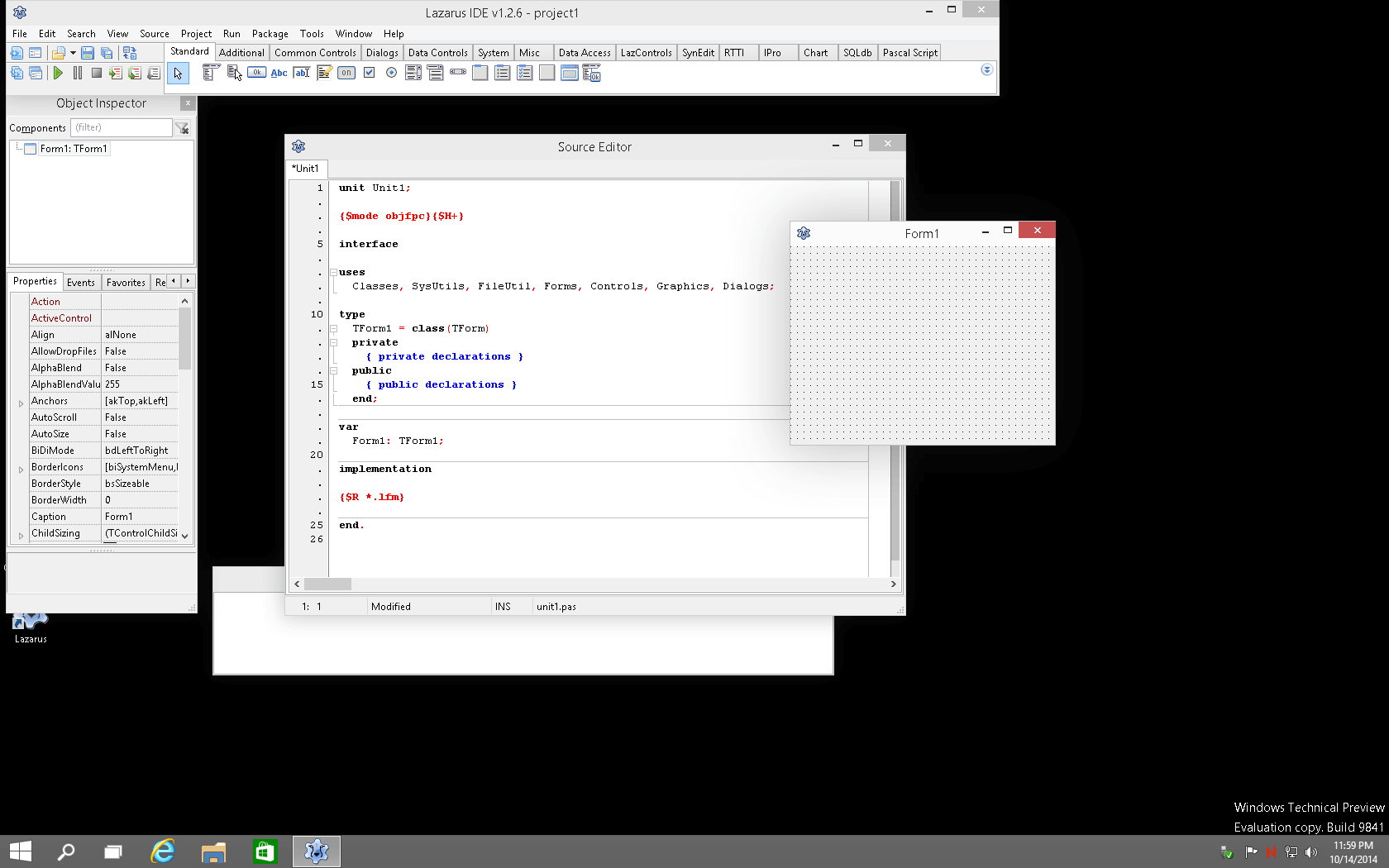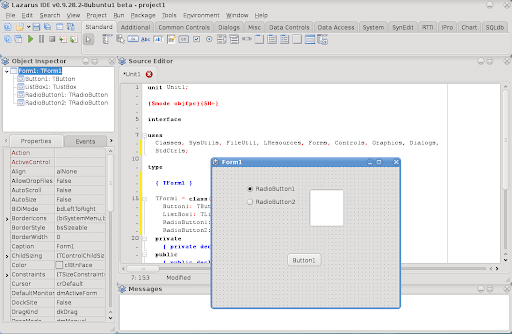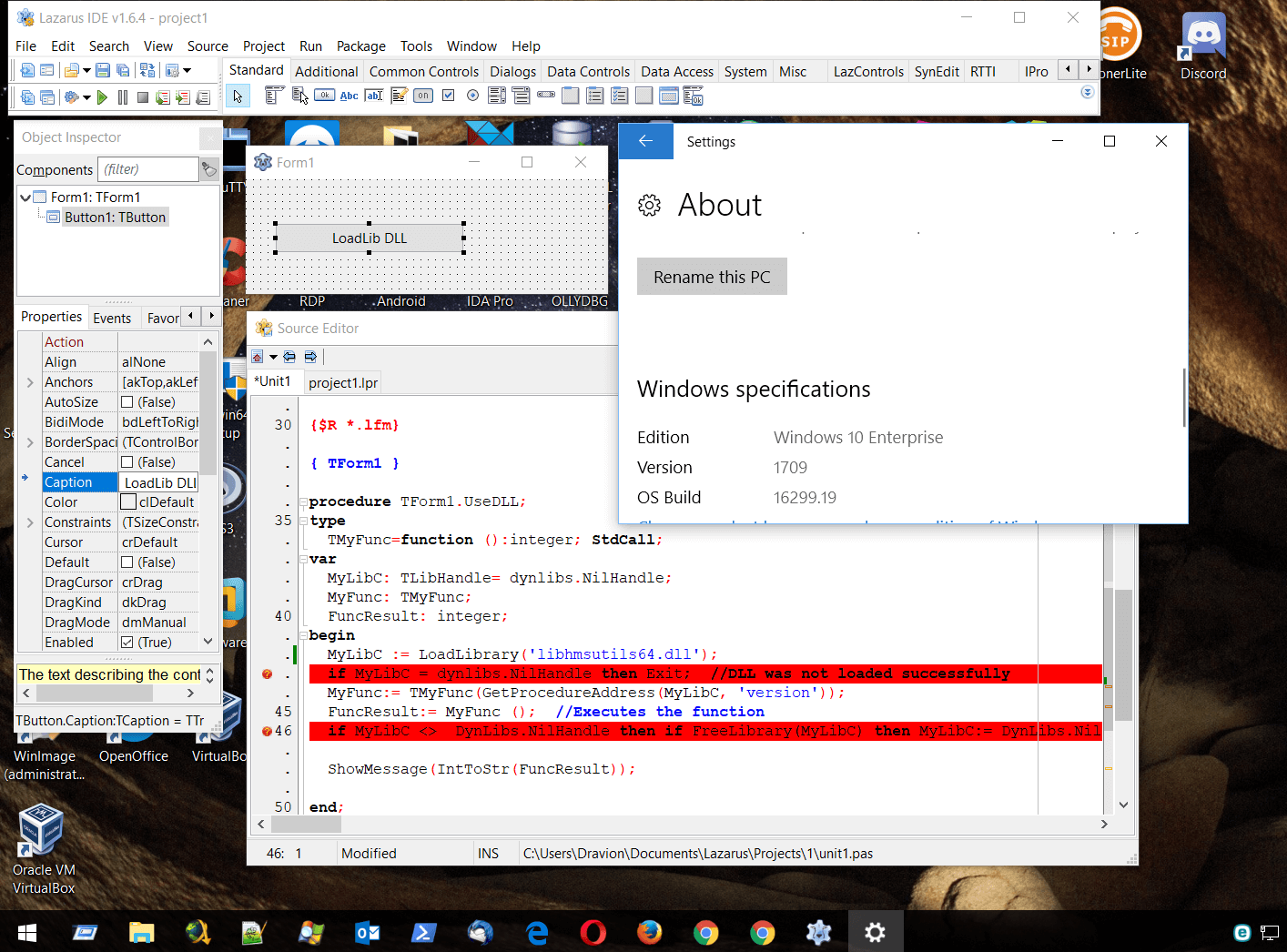Lazarus Software Download For Windows
Lazarus IDE Software is a Delphi compatible cross-platform IDE for Free Pascal. It includes LCL which is more or less compatible with Delphi’s VCL. Free Pascal is a GPL’ed compiler that runs on Linux, Win32, OS/2, 68K and more. Free Pascal is designed to be able to understand and compile Delphi syntax, which is OOP.
Lazarus IDE Software is the part of the missing puzzle that will allow you to develop Delphi-like programs in all of the above platforms. Unlike Java which strives to be a write-once run anywhere, Lazarus and Free Pascal strive to write once compile anywhere. Since the exact same compiler is available on all of the above platforms it means you don’t need to do any recoding to produce identical products for different platforms.

What is Pascal?
Pascal is an imperative and procedural programming language, designed by Niklaus Wirth as a small, efficient language intended to encourage good programming practices using structured programming and data structuring. It is named in honor of the French mathematician, philosopher, and physicist Blaise Pascal.
Based on Wirth’s book, Algorithms + Data Structures = Programs, Pascal was developed on the pattern of the ALGOL 60 language. Wirth was involved in the process to improve the language as part of the ALGOL X efforts and proposed a version known as ALGOL W. This was not accepted, and the ALGOL X process bogged down. In 1968, Wirth decided to abandon the ALGOL X process and further improve ALGOL W, releasing this as Pascal in 1970.

What is the Lazarus IDE Software?
Lazarus IDE Software is a Delphi compatible cross-platform IDE for Rapid Application Development. It has a variety of components ready for use and a graphical form designer to easily create complex graphical user interfaces.
What can Lazarus IDE Software do?
You can create your own open-source or commercial applications. With Lazarus IDE Software, you can create file browsers, image viewers, database applications, graphics editing software, games, 3D software, medical analysis software or any other type of software.
Where to learn?
Lazarus has a huge community of people supporting each other. It includes scientists and students, pupils and teachers, professionals and hobbyists. Our wiki provides tutorials, documentation, and ideas. Our forums and mailing-list offer a space to ask questions and talk to users and the developers.
The app is being developed to be totally and completely API independent. Once you write your code you just link it against the API widget set of your choice. If you want to use GTK+, great! If you want it to be Gnome compliant, great! As long as the interface code for the widget set you want to use is available you can link to it. If it isn’t available, well you can write it.

- The installer, with all required files available
- Easy Drag & Drop Form designer to create powerful layouts
- Automatic synchronization between GUI-Forms and code
- Powerful code editor with syntax highlighting and code completion
- Navigate pascal source code
- Refactoring tools
- Integrated build system and debugger. Run, test and debug your projects from the IDE
- Open Source. You can add or modify existing code and components to meet your requirements
- Package system allows installing 3rd party add ons for more components or to extend the IDE
- Several database frameworks to meet your requirements
- Reporting and Charting
- A choice of Networking libraries available.
- Utf8 and i18n support. Translate your projects.
- Many more components. Build-in and for download
For example. Let’s say you are creating a product on Windows using the standard Windows widgets. Now you want to create a Linux version. First, you decide what widget set you want to use. Let’s assume you want to use gtk+. So you copy the code over to your Linux development machine, compile, and link against the gtk+ interface unit. That’s it. You’ve now just created a Linux version of the Windows product without any additional coding.
If the code is standard Delphi pascal and it uses the standard components found in Delphi then the answer is yes. If it uses some specific database, OCX, or DCU then the answer would be no. These items are specific to Windows and would only work on and within Windows. However, if you are only looking to create a Windows product using Free Pascal and the app then the answer would be yes. This hasn’t been added to the LCL yet but it should be possible in the future.
The FCL (Free Pascal Component Libraries) and the LCL (which will eventually become part of the FCL) are licensed under a modified LGPL. In a nutshell, this means that you can write your own proprietary software that just links to these libraries. You can sell your application without the need to supply or make available your code. However, as with the compiler if you make modifications to the FCL or LCL you must make those changes available to the general public and the world.
Thanks to the tab-based interface and the accessible toolbars, the IDE is very easy to work with. It comes with a detachable source code editor that allows syntax highlighting, line numbering, comment insertion, code completion, and syntax checking, which are common features for any application of its kind.
You can use it to manage your project, import Delphi code and files to Lazarus, manage project requirements or use the included collection of templates to help you get started.

Lazarus IDE Software Features
- Cross-Platform: It runs on Windows, macOS, Linux, and many other platforms. Even on Raspberry Pi! The programs you create also runs on these platforms. Enjoy the same experience on your favorite OS. See Installing app for OS-specific instructions for installation.
- Powerful, Fast: The program is a capable IDE for handling large projects. Its compiler FPC is being constantly developed to improve performance. As an example for the project size the IDE can handle, and the performance of the resulting application: The IDE itself is developed using the tool.
- Drag and Drop Form Designer: It has a graphical form designer with guidelines for aligning with adjacent components. There are numerous components for almost every software imaginable, already ready to be used. Further components can be added to the IDE by Package Files (LPKs).
- Build your project: The app form designer uses LCL (Lazarus Component Library) which is specially designed for cross-platform usage. Building your project for different platforms will give you a native look and feel on each platform. There are no changes to the project needed.
- Modern, Object-oriented language: It uses Free Pascal as its language which is an Object Pascal dialect. It is constantly developed to integrate new features that can be expected in modern programming languages.
- Easily Extendable: Hundreds of developers are developing and maintaining their Libraries and Packages (LPKs). You can find almost any kind of library that you may need.

System Requirements
| Lazarus IDE 1.0 running on macOS | |
|---|---|
| Operating system | Windows, macOS, Linux, FreeBSD, Solaris, and others |
| Platform | IA-32, x86-64, ARM, PowerPC |
Official Video Intro Lazarus Software
- Delphi
- Xcode
- CodeTyphon
- B4X
- Turbo Pascal
- React Studio
Lazarus Software Overview

Technical Specification
| Software Name | Lazarus For Windows Software V 2.0.12 |
| File Size | 182 MB |
| Languages | English, Italian, French, Spanish, Polish, Chinese, German, Japanese |
| License | Free |
| Developer | Lazarus and Free Pascal Team |
Conclusion
Lazarus IDE Software is an open-source package that developers can use to build Delphi applications of all kinds. Thanks to the intuitive IDE and the wide range of components and functions, it can be considered a real asset to those who like working with Delphi.
ad


Comments are closed.